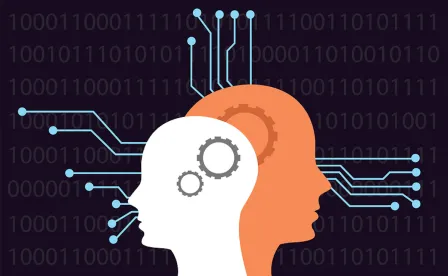The U.S. Equal Employment Opportunity Commission (EEOC) recently released its Draft Strategic Enforcement Plan for 2023-2027 (SEP), outlining the agency's goals and priorities for enforcing federal employment anti-discrimination laws. One key area of focus in the plan is employers’ use of artificial intelligence (AI) in hiring and recruitment.
The EEOC recognizes that the use of AI in hiring and recruitment is on the rise and is an incredible tool, aiding employers in sifting through hundreds or thousands of resumes to identify key candidates with qualities that match the skill set and experience required for a particular job. However, as we have addressed time and again, the EEOC’s draft SEP also highlights the potential to perpetuate and exacerbate discriminatory practices against certain groups, such as women, people of color, and individuals with disabilities. This is because AI algorithms are only as unbiased as the data that is fed into them. And, if that data reflects historical patterns of discrimination and/or inputs from users with specific biases (conscious or unconscious), then the AI system will likely perpetuate those patterns, risking disparate and unlawful impact discrimination against certain protected groups.
To address this issue, the draft SEP calls for increased scrutiny of AI tools used in hiring and recruitment, and for employers to ensure that their use of AI is non-discriminatory. This includes conducting regular audits and testing of AI tools to detect and correct any biases as well as providing transparency to job applicants about the use of AI in the hiring process.
Additionally, the EEOC is urging employers to prioritize diversity, equity, and inclusion in their hiring practices and to consider the potential impact of AI on underrepresented groups, especially those with mental or physical disabilities. This may involve creating diverse hiring teams, conducting focus groups and outreach to underrepresented communities, and incorporating alternative hiring methods to supplement or moderate use of AI tools.
The key takeaway from the draft SEP is the EEOC’s new focus on rooting out biases in recruitment technology. The obvious advantages of using such tools — including removing individualized decision-making about specific applicants or employees to limit liability of disparate treatment claims — is tempered by the magnified risk of disparate impact liability and the EEOC’s coming scrutiny of AI recruitment practices.
Overall, the EEOC's draft SEP highlights the growing importance of addressing the potential for discriminatory outcomes in the use of AI in hiring and recruitment. By taking proactive steps to ensure that their AI tools are non-discriminatory and prioritizing diversity and inclusion, employers can help to create a more equitable and inclusive workforce.




 />i
/>i
